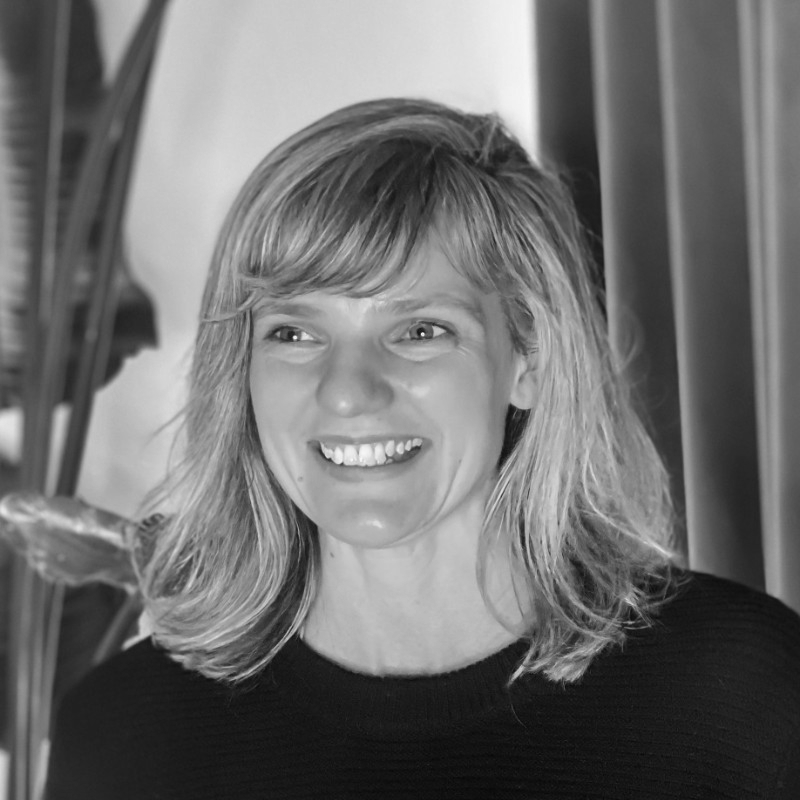
ASKING FOR A FRIEND
How do I stay optimistic whilst not loving where I am but also feeling scared to leave given a looming recession?
ASKING FOR A FRIEND - QUESTION
Caught between a job you're not loving and headlines screaming "recession"? You're not alone. In this timely discussion, Dr. Aileen Alegado, clinical psychologist and Director of Mindset Consulting, offers psychological strategies for regaining control when you feel like a "sitting duck," while Regina Stroombergen, Head Creative Tinker at Thinkerbell, provides practical industry perspective on job opportunities that still exist despite the doom and gloom. Both experts tackle the question of how to stay optimistic during economic downturns with compassion and realism, reminding us that sometimes the most empowering thing isn't jumping ship—it's making a deliberate choice to stay while exploring your options.
Economic downturns have a way of turning everything up to eleven. The uncertainty, the headlines, the job insecurity—it all adds up. And if you’re already not loving where you work, that weight can feel even heavier. The thought of making a change when the world feels unstable can be paralysing.
This is the reality for a lot of creative professionals right now: stuck in a role that doesn’t spark joy, anxious about what might happen if they try to move. Will leaving mean financial freefall? Will staying mean another six months of quiet misery? It’s a complicated space to sit in.
This question hits on something deeply human: how do we keep our heads and hearts intact when work isn’t working for us—and the world isn’t offering many alternatives?
To unpack it, we called on two wise humans. Dr. Aileen Alegado, a registered clinical psychologist and Director of Mindset Consulting, brings over 15 years of experience helping professionals navigate workplace change and challenge. She’s joined by Regina Stroombergen, Head Creative Tinker at Thinkerbell, with insights from both Melbourne and London agency life. The conversation is hosted by Andy Wright, Founder of Never Not Creative, Co-Chair of Mentally Healthy, and CEO of Streamtime—a long-time advocate for wellbeing in the creative industries.
Focus on what you can control
Dr. Aileen gets right to the heart of what makes this situation feel so hopeless: the loss of control. "Suffering is bearable when you know it has an ending. In that scenario it's hard to stay optimistic if you feel like you have no control over the situation and you're just like a sitting duck."
Her advice? Start small. Start with what’s in reach. "I would always say what can you control? Control the controllables, whether that is you spruce up your LinkedIn profile and be a little bit more active and put a little bit of an alert on Seek."
This isn’t about rushing into a new job or pretending everything's fine. It's about reminding yourself that you still have agency, even in small steps. "Not necessarily saying that you're gonna go jump ship but just even starting to feel like that is something that I can control and I am choosing to stay because there isn't really anything out there for me and they're not kicking you out yet."
Balance different types of stress
When you’re stuck between two tough choices, it’s easy to feel like you’re failing no matter what. Dr. Aileen names this dynamic honestly: "Staying there as much as it does probably cause a bit of distress, I imagine the reason why you're still there is because leaving also creates a different kind of stress—financial."
There’s no magic solution here, but there is power in pausing to reflect: "It's really just kind of balancing where you're at in terms of your mental health, how much can you really push through, how bad is it, and what are your options."
The simple act of choosing—even if the choice is to stay—can shift the emotional landscape. "I think once you kind of lay the options out and you make that concerted effort to make a decision, even if it's not a good one, even if it means maybe staying a little bit longer, it's a decision nonetheless. When that happens people often start to feel a little bit more in control of their life and a bit more empowered by that rather than just feeling trapped and stuck."
Find ways to make your current job more enjoyable
Not loving your job doesn’t always mean there’s nothing redeemable about it. Regina encourages finding the pockets of possibility: "Maybe there's an opportunity to—I know you said you weren't enjoying your job—but to make it more enjoyable."
This isn’t about toxic positivity or pretending the tough stuff isn’t tough. It’s about asking: is there a part of my role I could reshape? "Obviously don't want to leave and go have nothing to go to because that's stressful, but maybe you could take on a different client or a smaller project that's more aligned with something that would get you excited and be happy to kind of work there again. If there's any room for sort of molding what you're doing, it could be a good way forward for now."
Small changes, even temporary ones, can help you feel more connected to your work—without committing to a leap you’re not ready for.
Gain perspective through conversations
When things feel bleak, it’s easy to assume everyone else has it better. But perspective is often just one conversation away.
Regina reminds us that talking to others can be grounding: "Definitely get out and talk to people because there's always that kind of 'oh the grass must be greener elsewhere' and sometimes being able to just understand that actually 'oh no things are quite good where I am'—sometimes it's just perspective."
Despite the scary headlines, the job market isn’t all doom. "Whilst there is a lot of news around uncertainty around jobs and economy, and I think there have been even in the last few weeks some agency layoffs, there are also still a lot of roles available at the moment. It's about getting in touch with recruiters and finding out what there is out there and just making those connections even if you don't take advantage of it straight away and you wait a little for the right thing to come up. There's definitely still jobs out there."
When you need additional support
Let’s be real: juggling financial stress, career uncertainty, and a job you’re not loving can take a serious toll. If it’s all getting too heavy, please know that asking for help isn’t a weakness—it’s a wise and courageous act.
Whether you need immediate support or just someone to talk to, our help section lists services available 24/7. You're not alone in this.
Connect with peers who understand
No one should have to navigate these challenges in isolation. That’s why NNC Circles exist. These peer support groups are safe, judgment-free zones for creatives who need space to share, reflect, and feel less alone.
Small groups (8–10 people) meet monthly to talk openly about their experiences, with guidance from trained facilitators. It’s not therapy, and it’s not networking. It’s support—from people who get it.
Conclusion
Trying to stay optimistic when you’re in a job that drains you—while the economy keeps shouting bad news—is no small feat. But there are ways to stay grounded, and even hopeful, without forcing a big decision you’re not ready for.
Focus on the little things you can do: update your profile, talk to people, explore new projects that spark something in you. Remember, choosing to stay (for now) is still a choice. And that choice can bring a sense of clarity, even in the chaos.
Above all, know that your wellbeing matters more than any headline or productivity target. You’re not stuck. You’re in process. And there are people who want to help you get through it with your optimism—and your creativity—intact.
our guests
Industry Leader

Regina Stroombergen
Thinkerbell
Mental Health Expert

Dr Aileen Alegado
Mindset Consulting
Host

